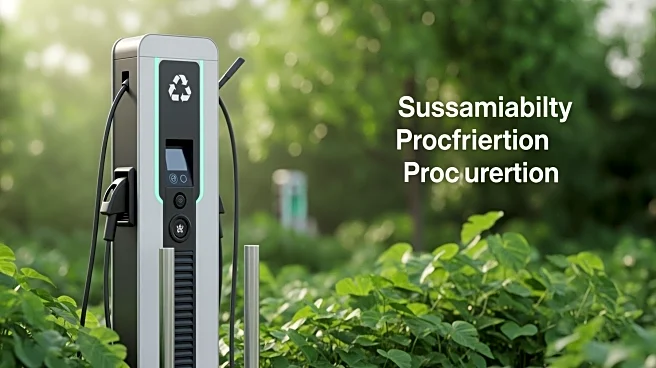What's Happening?
Volkswagen has integrated sustainability criteria into its procurement strategy, emphasizing environmental and human rights standards for supplier selection. The company has formalized this approach through its Raw Material Due Diligence Management System,
which monitors 18 high-risk materials such as lithium, nickel, and cobalt, essential for battery production. Suppliers are required to demonstrate transparency and responsible sourcing practices to secure contracts. Volkswagen's Responsible Raw Materials Policy aligns with international frameworks, promoting upstream due diligence. The company supports initiatives like battery recycling at its Salzgitter site to reduce reliance on virgin materials and lower the carbon footprint of its operations. Procurement teams are tasked with tracking and reducing supplier emissions, particularly in energy-intensive materials like steel and aluminum, encouraging the switch to renewable energy and lower-carbon manufacturing processes.
Why It's Important?
Volkswagen's procurement strategy is significant as it sets a precedent for sustainability in the automotive industry, potentially influencing other manufacturers to adopt similar practices. By tying supplier contracts to environmental and human rights standards, Volkswagen is pushing for greater accountability and transparency in the supply chain. This approach not only supports the company's net-zero trajectory and climate commitments but also contributes to the broader goal of reducing the automotive industry's environmental impact. Suppliers who fail to meet these standards may lose business opportunities, prompting a shift towards more sustainable practices. The emphasis on recycling and reducing emissions aligns with global efforts to combat climate change and promote circular economies.
What's Next?
Volkswagen's procurement strategy may lead to increased collaboration with suppliers who prioritize sustainability, fostering innovation in eco-friendly materials and processes. The company's focus on transparency and emissions reduction could drive advancements in renewable energy adoption and lower-carbon manufacturing techniques. As Volkswagen continues to implement its Responsible Raw Materials Policy, it may influence industry standards and regulatory frameworks, encouraging other automakers to follow suit. The success of initiatives like battery recycling at Salzgitter could pave the way for similar projects, enhancing resource recovery and reducing environmental impact.
Beyond the Headlines
Volkswagen's procurement strategy highlights the ethical dimensions of supply chain management, addressing issues such as labor practices and environmental stewardship. By prioritizing sustainability, the company is contributing to a cultural shift towards responsible corporate behavior. This approach may lead to long-term changes in industry norms, encouraging greater collaboration between manufacturers and suppliers to achieve shared sustainability goals. The focus on transparency and accountability could also enhance consumer trust and brand reputation, positioning Volkswagen as a leader in sustainable automotive practices.















